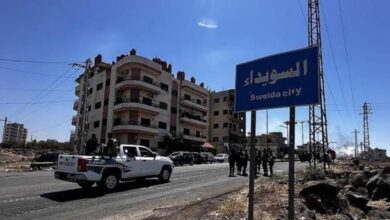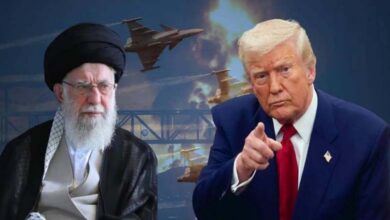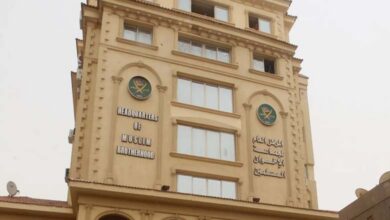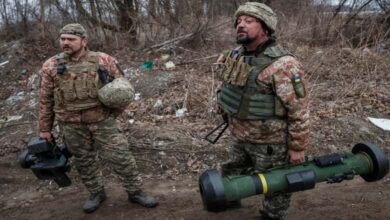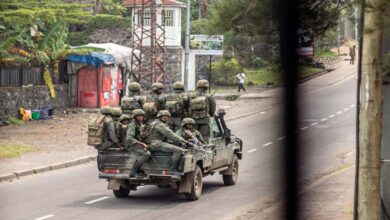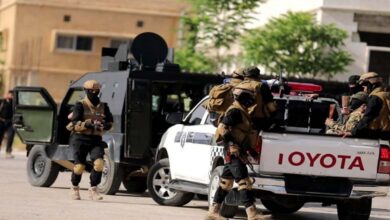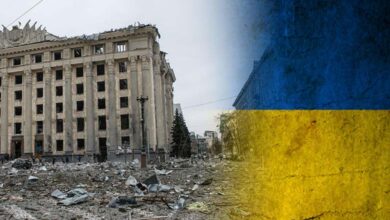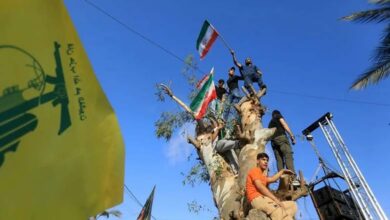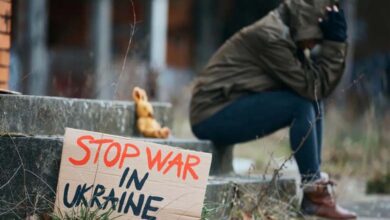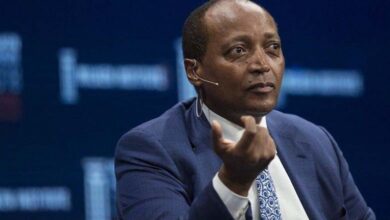Sudden Appearance of Al-Burhan after a Long Absence amid Divisions in the Army
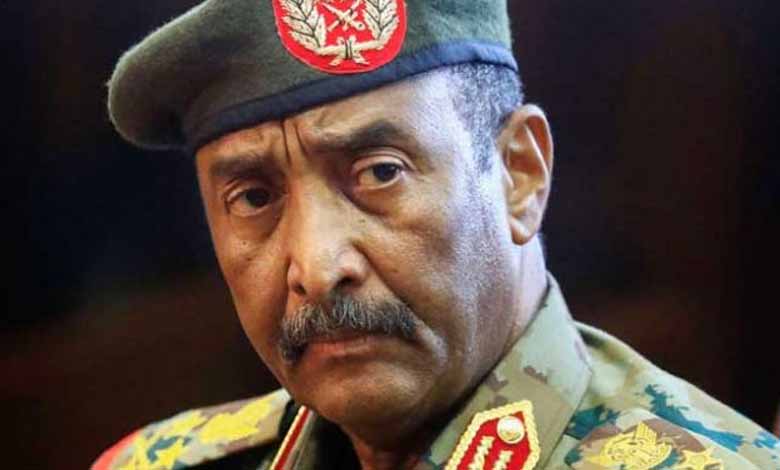
Hemeti confirms his readiness to accept a comprehensive political solution to address the historical Sudanese crisis despite the victories achieved by the Rapid Support Forces
Sudan’s Deputy Chairman of the Sovereignty Council, Abdel Fattah Al-Burhan, made a sudden appearance on Monday carrying a rifle, a pistol, and a hand grenade while presiding over a military meeting at the Command and Control Center in the capital, Khartoum. This marks his latest appearance following a series of recent defeats suffered by the Sudanese army. Meanwhile, the Rapid Support Forces announced that dozens of soldiers and officers from Al-Burhan’s forces had joined their ranks, while the recent voluntary calls issued by the army received no response from the youth.
Al-Burhan’s last appearance was on June 28th during a televised speech on the occasion of Eid al-Adha, preceded by another appearance on May 30th when he inspected the forces stationed at certain sites in Khartoum, according to a statement by the army.
The Sudanese army stated in a brief statement, “The Commander of the Army, Abdel Fattah Al-Burhan, visited the Command and Control Center (in central Khartoum) on Monday evening.”
A video was posted on Facebook showing Al-Burhan wearing a half-sleeve vest, carrying a rifle, a pistol, and a hand grenade. He greeted several officers before sitting down to chair a meeting of the army’s leadership.
In a separate video broadcast on his official Facebook page, the Commander of the Rapid Support Forces, Mohamed Hamdan Dagalo “Hemeti,” stated, “No victories, no matter how great, will tempt us not to progress courageously towards accepting a comprehensive political solution.”
Hemeti mentioned that “the war has surpassed three months and has increased the suffering of the citizens, especially in Khartoum and Darfur.” He emphasized that “there is no turning back halfway; it is either victory for the people or martyrdom.”
He added, “Peace and stability in the State of Freedom, Justice, and Equality have always been our choice. However, we are prepared for the option of war and ready to sacrifice ourselves so that our people can live with dignity, preserved in a united homeland.”
The Rapid Support Forces, in a statement on their Facebook page, announced the “joining of 51 officers and soldiers from the Sudanese army’s 16th Division in Nyala, South Darfur, led by Major Juma Abdullah Mohammed, with all their military equipment and weapons, to their forces.”
They stated that “the response of this force to the invitation of the Rapid Support Forces leadership represents a message to the coupists and their remnants that their dreams and ambitions of seizing power have turned into a storm that will uproot them for the sake of building a new and just Sudan.”
They renewed their call to “the remaining honorable individuals in the armed forces to align with the choices of the people and work side by side with their brothers in the Rapid Support Forces to liberate the homeland and its people from this extremist coupist group.”
Observers of the conflict in Sudan reported clashes between the Rapid Support Forces and the army in various parts of the town of Kass, resulting in looting and a new wave of displacement.
Since last Friday, fierce clashes have occurred in the city of Bahri, and on Monday, Lieutenant General Mohamed Hamdan Dagalo announced that his forces had achieved a victory in Bahri.
He stated, “The choice of peace and stability in the State of Freedom, Justice, and Equality has always been ours. However, we are ready for the option of war and prepared to sacrifice ourselves so that our people can live with dignity, preserved in a unified homeland.”
Despite the apparent openness of both parties to regional and international mediation efforts, none have resulted in a permanent ceasefire.
As the conflict enters its fourth month, the death toll in Sudan has exceeded 3,000, mostly civilians, with approximately 3 million internally displaced people and refugees in one of the world’s poorest countries, according to the Ministry of Health and the United Nations.


